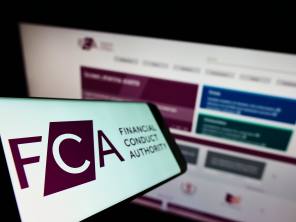

According to a major poll compiled by YouGov and the Centre for Economics and Business Research, levels of confidence climbed to 112.4 last month.
Any number above the 100 mark signifies optimism and anything below indicates a negative outlook.
The study, which surveyed 500 businesses, suggested confidence has returned to levels seen back in May and June, when the index hovered around 112.5 and 112.6.
In July, the level stood at 105.
These figures align with investor confidence, which was also shown to have made a comeback since the Brexit vote, hitting a high in August this year.
For the first time since the referendum, the majority of businesses said they were positive about their own performance over the next year, with the index showing 53 per cent of businesses were optimistic in September, which is the same level reported before the Brexit vote in June.
This compared with 48 per cent in August and 46 per cent in July.
The index also revealed there had been a boost in the number of businesses who had greater optimism about the UK economy over the next 12 months, climbing to 44 per cent in September from 35 per cent in August.
Scott Corfe, director at the CEBR, said the data indicates confidence took a short-term “stumble” in the wake of the EU vote, instead of the long-term fall which many had expected.
"The panic that gripped businesses in the aftermath of the referendum has subsided and they are now much more level-headed and optimistic about the future of both their own organisations and the UK’s economy in general.”
However, Mr Corfe pointed out the research was carried out before all the talk of a “hard Brexit”, which would block the UK from having full access to the European single market.
“Once the shape of our economic relationship with the EU becomes clearer, these figures could shift notably.”
Stuart Anderson, head of marketing, said: “I’m not sure anything that happens in 2016 should come as a surprise to anyone now.
“It’s obviously better that businesses are feeling confident than nervous, not least because confidence can build a virtuous circle of investment from which everyone benefits.
“We saw how damaging a general lack of confidence can be following the 2008 financial crisis,” he said, adding however it wasn’t just about confidence and suggested the economy “talked itself into recession” in 2009.
“Confidence is great, and I’m glad of it, but the most confident driver still needs enough fuel in the tank to get to the end of the race. I just hope that, in monetary terms, we don’t turn out to be driving on the fumes at the bottom of the tank.”
Mr Anderson said he is very confident about the future of its business, but adding: “I’m not going to pretend that it won’t be harder work if our clients start finding times tougher over the next few years.
“Our confidence partly stems from a willingness to put in that hard work, and a belief – based on weathering many economic storms over the last three decades – that hard times are when the best businesses can prove themselves, and come out in a stronger position after weaker competitors fall by the wayside.”



